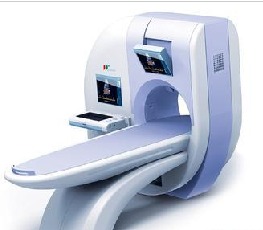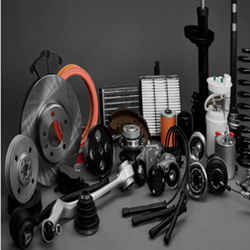 Medical mechanical instruments are related to the people's livelihood and have a great influence on the improvement of medical standards. Instruments imported from abroad have always been favored. Although they are expensive, they still have good sales under the premise of quality assurance. China is also increasing its investment in self-service innovations for cutting-edge instruments, but domestically produced instruments have awkward status: in the case of similar quality, prices are also very high. In the two sessions this year, the Central Committee of the Zhi Gong Party submitted the "Proposal on Improving the Competitiveness of the Domestic Medical Device Industry and Reducing Medical Costs," and conducted a profound analysis of the status quo of domestic medical devices. Actually, this proposal originated from Zang Yunqing, a member of the Zhigong Party in Zhejiang Province. He is the vice president of medical equipment at the First Affiliated Hospital of Zhejiang University School of Medicine. He has a lot of feelings, and a small number of products with technical content also have the same price as foreign countries. Only by greatly improving China's overall medical device R&D and production levels and enhancing industrial competitiveness can it be possible to reduce medical costs.
Medical mechanical instruments are related to the people's livelihood and have a great influence on the improvement of medical standards. Instruments imported from abroad have always been favored. Although they are expensive, they still have good sales under the premise of quality assurance. China is also increasing its investment in self-service innovations for cutting-edge instruments, but domestically produced instruments have awkward status: in the case of similar quality, prices are also very high. In the two sessions this year, the Central Committee of the Zhi Gong Party submitted the "Proposal on Improving the Competitiveness of the Domestic Medical Device Industry and Reducing Medical Costs," and conducted a profound analysis of the status quo of domestic medical devices. Actually, this proposal originated from Zang Yunqing, a member of the Zhigong Party in Zhejiang Province. He is the vice president of medical equipment at the First Affiliated Hospital of Zhejiang University School of Medicine. He has a lot of feelings, and a small number of products with technical content also have the same price as foreign countries. Only by greatly improving China's overall medical device R&D and production levels and enhancing industrial competitiveness can it be possible to reduce medical costs. Yan Yunqing just finished an invitation to bid for a medical device before the interview. He said that the tender was for the treatment of tumor microwave needles. Although it was made domestically, the manufacturer's asking price was between 9,000 yuan and 10,000 yuan. More than 10,000 yuan of imported products. “This kind of microwave needle is a one-time high-quality consumables, because there are few domestic manufacturers, so there is not much price advantage.†After many rounds of negotiations, the hospital finally talks about the price of 7,500 yuan. Even so, he I feel that for the patient, the burden is really not small.
If you do not calculate the cost of advance research and development and promotion, Hao Yunqing estimates that the manufacturing cost of this microwave needle is between RMB 1,000 and RMB 2,000. Moreover, this microwave needle is also not a manufacturer's original technology, and may only have some minor technological improvements on the basis of similar imported products. What about the hospital? "At most, only 100 yuan is added to the patient and the treatment cost is about 300 yuan."
Yan Yunqing said that after the implementation of zero-difference reforms in medicines, the high cost of medical devices has become an important cause of increasing medical expenses for patients. After uniform tendering for drugs, hospitals have no autonomy over the prices of drugs. Medical devices are individually tendered by hospitals, and often medical device manufacturers do not have a uniform price for their products. Before each tender, hospital departments must do a lot of work. Despite the purchase price of the medical device, the hospital can only increase the price by 100 yuan. At each tender, the hospital must follow the manufacturer's "soft rub" and the sales staff "witted to fight," reducing the price as much as possible.
"This work has occupied me for quite a while, and it is almost every week. Many times it is more exhausting than patience and perseverance."
Large-scale inspection equipment maintains high prices
I am not sure whether Chai Miu is not a member of the family. As an expert in liver diseases, Geng Yunqing has to deal with heavy medical tasks. At the same time, he has to “calculate†how hospital days have passed. He said: "A lot of equipment will have to pay maintenance premiums again in September."
Since most of the hospital's current large-scale medical equipment relies on imports, not only the cost of acquisition is high, but also the maintenance and repair costs are very high. For example, a PET-CT with a price of 18.5 million yuan has a one-year maintenance cost of 1.2 million yuan. the above. "There are reagents, consumables, etc. that medical equipment needs to use. They are all expensive, and you can only use him." Yan Yunqing said, some equipment, manufacturers can even make the hospital free of charge, just reagents and supplies are enough Earned.
The hospital's income from medical devices is very low. The doctors and doctors are both working for foreign companies and middlemen. This not only imposes a heavy burden on patients, but also brings difficulties to hospital operations.
The same medical device into the small hospital is more expensive
More than 90% of the medical equipment used in domestic top-three hospitals is imported, which is a common situation in the country. Are more secondary medical equipments used in secondary hospitals? Not necessarily, because many large-scale inspection and treatment equipment, there is no domestic, and secondary hospitals can only choose to import equipment.
Yan Yunqing introduced that China's high-end medical equipment basically relies on imported or foreign-funded enterprises for production, with more than 30% hospitals accounting for more than 90%, and secondary hospitals accounting for about 2/3. “Our hospital has hosted a secondary hospital. I understand that the cost of the inspection equipment and high-quality consumables they purchase is usually higher than ours, because the use of secondary hospitals cannot be used.â€
It is difficult for domestic doctors to participate in the improvement of medical devices. Although our hospitals use imported medical devices in large quantities, it is very difficult for domestic doctors to participate in the improvement of medical devices. “There are a whole set of systems for R&D, production, and clinical trials of foreign medical devices. I haven’t heard of any equipment that will improve based on the use of doctors in our country.â€
In addition to doctors, many graduates of the medical engineering majors in biomedical sciences have a hard time finding ways to use medical devices. “Our hospital now has about 20 biomedical engineering professionals and is responsible for the maintenance of medical equipment in the hospital.†Yan Yunqing also feels sorry, “The students of domestic student projects mostly do sales personnel for foreign medical equipment, and a few remain. In domestic manufacturers, there are only a few manufacturers who really research and produce medical equipment. Therefore, there are not many graduates who can engage in R&D."
According to the 2008 data from the National Bureau of Statistics, the number of employees of medical device manufacturing enterprises in 2006 was about 150,000, of whom only 2,354 were R&D personnel. Yan Yunqing believes that China urgently needs to build a qualified and stable medical equipment talent team.
Representative's suggestion: To improve the competitiveness of domestic medical devices, we must go hand in hand
The reasons for the low market share of the domestic medical device market are mainly due to insufficient investment in R&D funds and lack of technical reserves. Industry entry requirements are low and industrialization is small. Starting late, the product has low maturity, high failure rate, fast component loss, and poor technical and after-sales service, which can not form a good market reputation.
In order to promote the research and development of domestic medical devices and improve the level of domestic medical device production and competition, Yunyun Qing proposed:
1. Increase investment in basic research in the medical device industry. China's investment in medical device research and development has been insufficient for a long time, and it is mainly concentrated in research institutes and schools. The R&D input of companies only accounts for about 2% to 3% of total sales revenue. It is recommended that relevant departments pay close attention to and promote the independent research and development of new products in the medical device industry, and do a good job in the layout of the innovation chain, product chain, industrial chain, and talent chain.
2. Establish a fair, just, and open medical device evaluation platform. The relative weakness of the quality supervision system has also led to a lack of market confidence in domestic medical devices. Therefore, we must establish a fair, just, and open medical device monitoring platform to ensure the quality and stability of domestic medical device products.
3. Establish an integration center for medical device R&D and clinical trials to promote cooperation between companies and large medical institutions. The development of medical technology is closely related to medical devices. Clinical new methods and technologies require the support and support of medical devices. The improvement and innovation of medical devices require clinically first-hand information on demand. Therefore, it is recommended to set up a medical device R&D center that cooperates with enterprises in large medical institutions to provide clinical front-line testing and usage templates for new medical devices, promote their promotion, and enable medical institutions to directly convert clinical needs into productivity. Further improve the level of medical technology. At the same time, it is suggested that the product approval department should study the measures for early entry and provide guidance on product innovation and achievement conversion.
4. Improve policies and regulations, guide and encourage the use of domestic medical devices. At present, domestic medical devices still face unfavorable factors such as long review and approval cycle, product discrimination, incomplete technical standards system, and unfavorable credit policies. It is therefore imperative for the government to introduce relevant measures: Including domestically produced original innovative medical devices in all levels of medical and health institutions. Configuration directory, and as a hospital-grade assessment of equipment standards; rational formulation of medical device bidding plan, a reasonable development of domestic medical device product price determination standards, the establishment of a dedicated channel for procurement procedures, the establishment of the government's first purchase system; the establishment of a unified national medical pricing principles And medical insurance policies; the establishment of medical device R&D science and technology support programs, etc.; strengthen publicity of medical science knowledge and increase public recognition of domestic medical devices. Increase the proportion of personal reimbursement for imported medical equipment.
Auto parts are the component elements and systems that make up a car. They range from the smallest fasteners to the largest body panels, from the engine to the seat springs. During the life of your vehicle, you will need to replace the tires, windshield wipers, brake pads, battery, spark plugs, and countless other auto parts.

Auto Parts,Factory OEM Auto Parts,Auto Steering Gear Box,Car Spare Parts
NINGBO CITY YINZHOU RUICAN MACHINERY CO.,LTD , https://www.ruican-casting.com